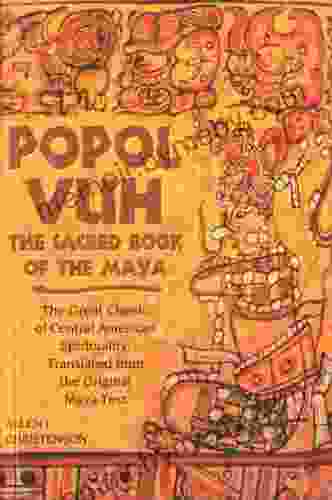Adam Smith: The Father of Economics

Adam Smith, a renowned Scottish philosopher and economist, is widely regarded as the father of economics. His seminal work, "The Wealth of Nations", published in 1776, laid the groundwork for modern economic theory and profoundly influenced the understanding of economic systems. In this article, we delve into the life, work, and enduring legacy of Adam Smith, exploring his contributions to the field of economics.
Early Life and Education
Adam Smith was born on June 5, 1723, in Kirkcaldy, Scotland. His father, also named Adam Smith, was a comptroller of customs, while his mother, Margaret Douglas, was the daughter of a prominent landowner. Smith's father passed away shortly before his birth, leaving his upbringing to his mother and his maternal family.
4.5 out of 5
| Language | : | English |
| File size | : | 32302 KB |
| Text-to-Speech | : | Enabled |
| Screen Reader | : | Supported |
| Enhanced typesetting | : | Enabled |
| X-Ray | : | Enabled |
| Word Wise | : | Enabled |
| Print length | : | 417 pages |
In 1737, at the age of 14, Smith enrolled at the University of Glasgow, where he excelled in his studies, particularly in mathematics and moral philosophy. He then pursued studies at Balliol College, Oxford in 1740. However, he found the Oxford curriculum outdated and stifling, and he eventually returned to Scotland in 1746.
Lectures and Early Writings
After returning to Scotland, Smith began giving lectures on rhetoric and belles-lettres at the University of Edinburgh. His lectures were well-received, and he soon gained a reputation as a brilliant lecturer and thinker. In 1751, he published his first major work, "The Theory of Moral Sentiments", an inquiry into the nature and origin of morality.
The "Theory of Moral Sentiments" explored the role of sympathy and empathy in shaping human behavior and morality. Its success brought Smith into contact with prominent intellectuals of the time, including David Hume, who became a close friend and mentor.
"The Wealth of Nations"
In 1776, Smith published his most influential work, "An Inquiry into the Nature and Causes of the Wealth of Nations", commonly known as "The Wealth of Nations". This magnum opus revolutionized the field of economics and is considered one of the most influential books ever written.
"The Wealth of Nations" argued that the pursuit of self-interest within a free market system ultimately leads to economic prosperity and growth. Smith emphasized the importance of specialization, division of labor, and the role of the invisible hand in coordinating economic activity.
The Invisible Hand
One of Smith's most famous concepts is the "invisible hand". According to Smith, individuals seeking their own self-interest in a free market are inadvertently guided by an invisible hand to promote the common good. The invisible hand ensures that the production and distribution of goods and services are efficiently allocated throughout society.
Capitalism and Free Markets
Smith's work provided a theoretical basis for capitalism and free market economies. He argued that free markets, driven by self-interest and competition, create wealth and prosperity. Smith's ideas influenced the development of economic policies around the world, leading to the rise of laissez-faire economics and the reduction of government intervention in the economy.
Legacy and Impact
Adam Smith's contributions to economics were profound and far-reaching. His ideas laid the foundations for modern economic theory and continue to influence economic thought and policy today. Smith's emphasis on individual liberty, free markets, and economic growth has had a lasting impact on the global economy.
Adam Smith, the father of economics, was a visionary thinker whose ideas have shaped the way we understand economic systems. His seminal work, "The Wealth of Nations", revolutionized economics and remains a cornerstone of economic theory. Smith's legacy continues to inspire economists and policymakers around the world, making him one of the most influential figures in the history of economic thought.
4.5 out of 5
| Language | : | English |
| File size | : | 32302 KB |
| Text-to-Speech | : | Enabled |
| Screen Reader | : | Supported |
| Enhanced typesetting | : | Enabled |
| X-Ray | : | Enabled |
| Word Wise | : | Enabled |
| Print length | : | 417 pages |
Do you want to contribute by writing guest posts on this blog?
Please contact us and send us a resume of previous articles that you have written.
 Book
Book Novel
Novel Page
Page Chapter
Chapter Text
Text Story
Story Genre
Genre Reader
Reader Library
Library Paperback
Paperback E-book
E-book Magazine
Magazine Newspaper
Newspaper Paragraph
Paragraph Sentence
Sentence Bookmark
Bookmark Shelf
Shelf Glossary
Glossary Bibliography
Bibliography Foreword
Foreword Preface
Preface Synopsis
Synopsis Annotation
Annotation Footnote
Footnote Manuscript
Manuscript Scroll
Scroll Codex
Codex Tome
Tome Bestseller
Bestseller Classics
Classics Library card
Library card Narrative
Narrative Biography
Biography Autobiography
Autobiography Memoir
Memoir Reference
Reference Encyclopedia
Encyclopedia Donald S Murray
Donald S Murray Alon Shaya
Alon Shaya Amy Reed
Amy Reed Alexandre Dumas
Alexandre Dumas Ali Bey
Ali Bey Arden Moore
Arden Moore Alexandra Teleru
Alexandra Teleru Rick Austin
Rick Austin John Otis
John Otis Gerald Kelley
Gerald Kelley Karen Brewster
Karen Brewster Arthur Gelb
Arthur Gelb Corine Gantz
Corine Gantz Tina Nelson
Tina Nelson Alfons Kaiser
Alfons Kaiser Amanda Kuster
Amanda Kuster America S Test Kitchen
America S Test Kitchen Steven T Callan
Steven T Callan Allan M Siegal
Allan M Siegal Eileen Markey
Eileen Markey
Light bulbAdvertise smarter! Our strategic ad space ensures maximum exposure. Reserve your spot today!

 Stephen Foster1000 Days of Quick and Healthy Recipes: Enjoy Sustainable Living and Take...
Stephen Foster1000 Days of Quick and Healthy Recipes: Enjoy Sustainable Living and Take...
 Lucas ReedUnveil the Sacred Secrets of the Maya with "Popol Vuh: The Sacred Book of the...
Lucas ReedUnveil the Sacred Secrets of the Maya with "Popol Vuh: The Sacred Book of the... Anthony BurgessFollow ·6.1k
Anthony BurgessFollow ·6.1k Allan JamesFollow ·6.7k
Allan JamesFollow ·6.7k Mark MitchellFollow ·8.1k
Mark MitchellFollow ·8.1k Ivan TurnerFollow ·8.1k
Ivan TurnerFollow ·8.1k Jay SimmonsFollow ·12.1k
Jay SimmonsFollow ·12.1k Mario Vargas LlosaFollow ·18.4k
Mario Vargas LlosaFollow ·18.4k Leo MitchellFollow ·4k
Leo MitchellFollow ·4k Mario BenedettiFollow ·15.3k
Mario BenedettiFollow ·15.3k

 Robert Reed
Robert ReedConservation Habitat Changes And The Rise Of Urban...
As urban areas continue to expand, wildlife...

 W. Somerset Maugham
W. Somerset MaughamRide the Waves: The Ultimate Guide to Surfing Indonesia...
Are you ready to embark on an unforgettable...

 Arthur Conan Doyle
Arthur Conan DoyleThe Widow, the Priest, and the Octopus Hunter: A Literary...
Prologue: A Tapestry...

 Fernando Bell
Fernando BellRide the Waves of Adventure: The Ultimate Guide to...
Unveiling the Surfing Paradise of Peru For...
4.5 out of 5
| Language | : | English |
| File size | : | 32302 KB |
| Text-to-Speech | : | Enabled |
| Screen Reader | : | Supported |
| Enhanced typesetting | : | Enabled |
| X-Ray | : | Enabled |
| Word Wise | : | Enabled |
| Print length | : | 417 pages |











